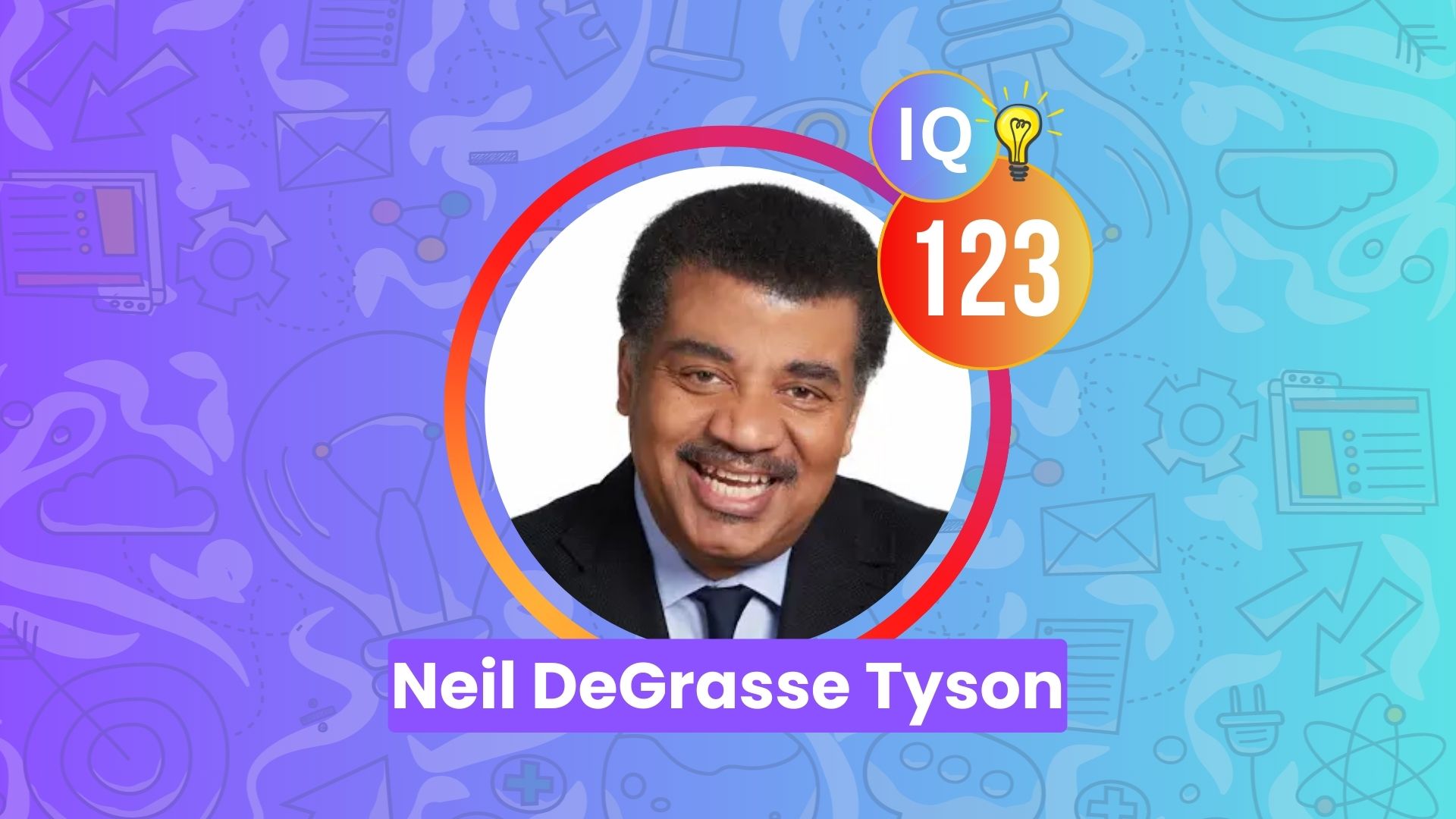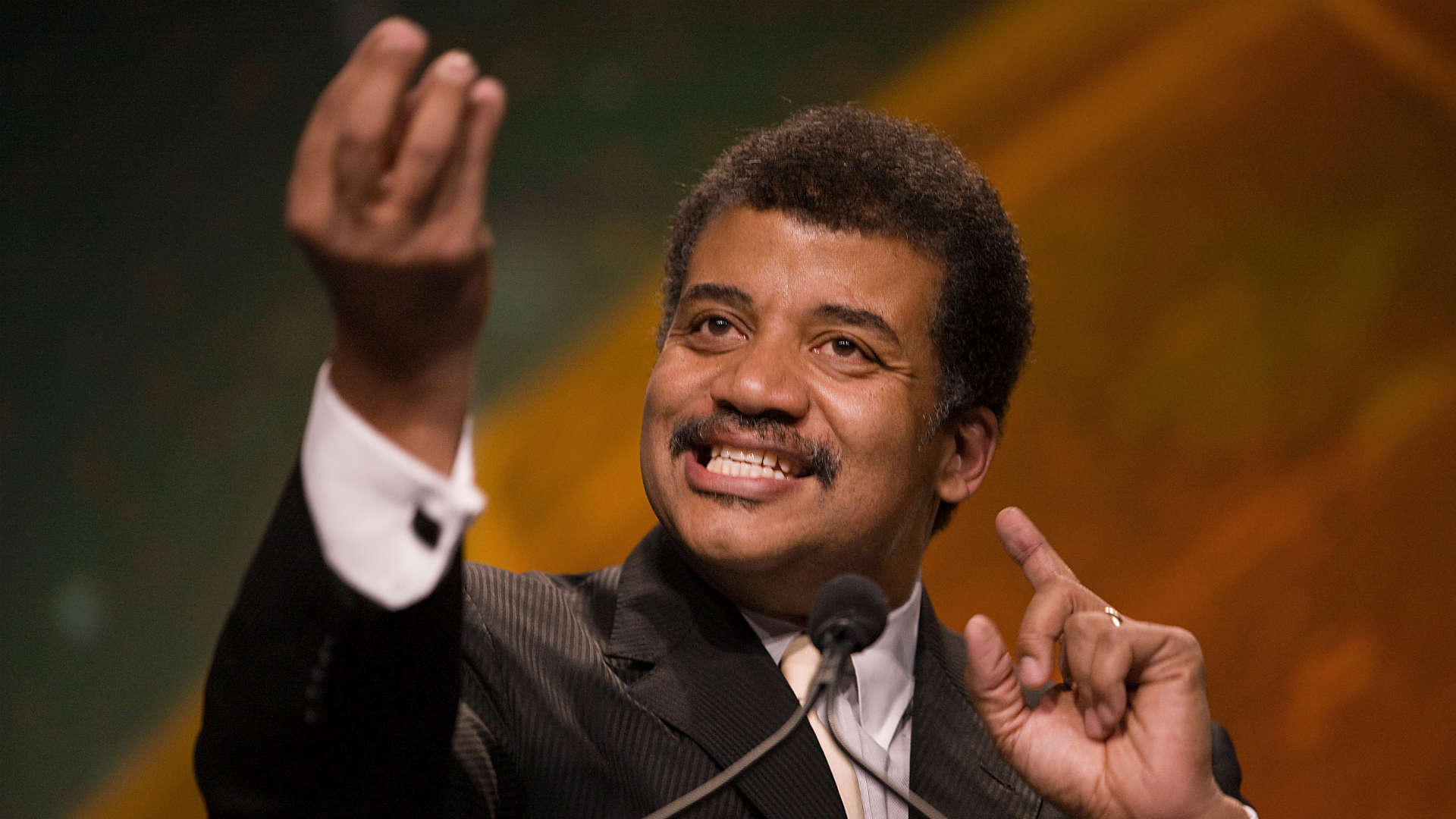What Is Neil DeGrasse Tyson's IQ? Unveiling The Genius Behind The Cosmos
When it comes to brilliant minds, Neil deGrasse Tyson stands tall as one of the most iconic figures in modern science. But have you ever wondered what is Neil deGrasse Tyson's IQ? Is there a number that defines his intellect? In this article, we’ll dive deep into the world of astrophysics, intelligence, and the man himself, exploring what makes Neil so extraordinary. So, grab your coffee, and let’s uncover the truth behind his genius.
Neil deGrasse Tyson is more than just a scientist; he’s a communicator, a storyteller, and a bridge between complex science and the everyday person. His ability to make astrophysics accessible to the masses has earned him a place in the hearts of millions. But beneath the charisma and charm lies a mind capable of unraveling the mysteries of the universe. How smart is he really? Let’s find out.
Before we jump into the details, it’s important to note that intelligence isn’t always measured by IQ alone. While we’ll explore what is Neil deGrasse Tyson's IQ, we’ll also take a broader look at his achievements, contributions, and the qualities that make him a standout figure in the world of science. Ready to embark on this cosmic journey?
Read also:Ximena Aacutevsaenz The Rising Star In Latin Entertainment
Who is Neil deGrasse Tyson? A Quick Biographical Dive
Early Life and Education
Neil deGrasse Tyson was born on October 5, 1958, in New York City. From an early age, he showed a keen interest in the stars and planets. Growing up in the Bronx, young Neil would often visit the Hayden Planetarium, sparking a lifelong passion for the cosmos. His education journey took him to the Bronx High School of Science and later to Harvard University, where he earned his bachelor’s degree in physics.
After Harvard, Tyson continued his academic pursuits at the University of Texas at Austin, earning a Ph.D. in astrophysics. His dedication to learning and understanding the universe laid the foundation for his future career as a renowned astrophysicist. But what about that elusive IQ number? Let’s keep digging.
Professional Milestones
Tyson’s career is nothing short of impressive. He has served as the director of the Hayden Planetarium, the very place where his love for astronomy began. Over the years, he’s authored numerous books, hosted popular TV shows like "Cosmos: A Spacetime Odyssey," and even appeared on late-night talk shows, making science cool and approachable for everyone.
His professional achievements have earned him numerous awards and honors, including the NASA Distinguished Public Service Medal. But beyond the accolades, Tyson’s true gift lies in his ability to inspire and educate. Now, let’s get back to the burning question: What is Neil deGrasse Tyson's IQ?
What is Neil deGrasse Tyson's IQ?
While there’s no official public record of Neil deGrasse Tyson's IQ, it’s widely speculated that he falls within the range of highly intelligent individuals. IQ tests, however, are not the sole measure of intelligence. Tyson himself has emphasized that creativity, curiosity, and critical thinking are equally important traits for success in science.
Instead of focusing solely on IQ, let’s take a look at some of the factors that contribute to Tyson’s brilliance:
Read also:Ximenna Saenz A Rising Star In The Spotlight
- His extensive knowledge of astrophysics
- His ability to simplify complex concepts for the general public
- His passion for education and outreach
- His innovative approach to problem-solving
Is IQ the Best Measure of Intelligence?
The Limitations of IQ Tests
IQ tests have been around for over a century, but they’re not without controversy. Critics argue that these tests often fail to capture the full spectrum of human intelligence. For instance, emotional intelligence, creativity, and social skills aren’t typically measured by traditional IQ tests. So, while Neil deGrasse Tyson's IQ might be impressive, it’s only one piece of the puzzle.
Think about it this way: Tyson’s ability to inspire millions through his work goes beyond mere numerical intelligence. It’s his charisma, communication skills, and deep understanding of the universe that truly set him apart.
Types of Intelligence
There are many types of intelligence, and Tyson excels in several of them. Here’s a quick breakdown:
- Logical-Mathematical Intelligence: Tyson’s expertise in astrophysics speaks volumes about his ability to think logically and solve complex problems.
- Verbal-Linguistic Intelligence: His talent for storytelling and public speaking makes him a master communicator.
- Spatial Intelligence: As an astrophysicist, Tyson has a deep understanding of space and the cosmos, showcasing his spatial intelligence.
Neil deGrasse Tyson's Contributions to Science
Throughout his career, Tyson has made significant contributions to the field of science. From researching the structure of the universe to advocating for science education, his impact is undeniable. Here are some of his most notable achievements:
- Authoring over a dozen books on astrophysics and science
- Hosting the reboot of Carl Sagan’s "Cosmos" series
- Serving as a science advisor for NASA and other organizations
- Engaging in public debates on science-related topics
These accomplishments highlight Tyson’s dedication to advancing scientific knowledge and promoting science literacy. But how does his IQ play into all of this? Let’s explore further.
Neil deGrasse Tyson's Influence on Popular Culture
Tyson’s influence extends far beyond the scientific community. He’s become a household name, appearing on TV shows, podcasts, and even memes. His ability to connect with people from all walks of life has made science more relatable and fun. Whether he’s discussing black holes or debating with comedians, Tyson always brings his unique blend of intellect and humor to the table.
So, while we may not know the exact number of Neil deGrasse Tyson's IQ, we do know that his influence on popular culture is immeasurable. He’s proof that intelligence isn’t just about numbers; it’s about making a difference in the world.
How Does Neil deGrasse Tyson Compare to Other Scientists?
Historical Context
When comparing Tyson to other great scientists, it’s important to consider the context of their times. Figures like Albert Einstein, Stephen Hawking, and Isaac Newton all made groundbreaking contributions to science, but each had their own unique strengths and challenges. Tyson stands out not only for his scientific achievements but also for his role as a science communicator.
While Einstein’s IQ is rumored to have been around 160, and Hawking’s was reportedly 160 as well, Tyson’s impact on society may be measured differently. His ability to inspire the next generation of scientists is arguably just as important as any numerical measure of intelligence.
Modern-Day Comparisons
In today’s world, Tyson is often compared to other popular science figures like Bill Nye and Michio Kaku. Each of these individuals brings something unique to the table, but Tyson’s combination of academic expertise and public engagement sets him apart. Whether it’s through his TV appearances or his engaging social media presence, Tyson continues to captivate audiences worldwide.
Does a High IQ Guarantee Success?
Not necessarily. While a high IQ can certainly be an asset, success in life depends on a variety of factors. Emotional intelligence, perseverance, and adaptability often play just as important a role as raw intellect. Tyson’s success can be attributed to his hard work, passion, and dedication, rather than just his IQ score.
Think about it: Some of the most successful people in history didn’t have the highest IQs, but they possessed other qualities that helped them achieve greatness. Tyson’s ability to inspire and educate millions is proof that intelligence comes in many forms.
What Can We Learn from Neil deGrasse Tyson?
Neil deGrasse Tyson’s life and career offer valuable lessons for all of us. Here are a few takeaways:
- Pursue Your Passions: Tyson’s love for the cosmos has driven his career from day one. Follow your passions, and success will often follow.
- Communicate Effectively: Tyson’s ability to explain complex ideas in simple terms is a skill we can all benefit from. Whether you’re a scientist, teacher, or business professional, clear communication is key.
- Stay Curious: Tyson’s curiosity about the universe has led to countless discoveries and insights. Cultivate a sense of wonder and curiosity in your own life, and you’ll never stop learning.
Conclusion: The Genius Beyond the Numbers
So, what is Neil deGrasse Tyson's IQ? While we may never know the exact number, it’s clear that Tyson’s intelligence goes far beyond any test score. His contributions to science, education, and popular culture have left an indelible mark on the world. By inspiring millions to look up at the stars and dream big, Tyson has proven that true genius isn’t just about IQ—it’s about making a difference.
Now it’s your turn. Leave a comment below and let us know what you think about Neil deGrasse Tyson’s impact on science and society. And if you enjoyed this article, don’t forget to share it with your friends and family. Together, we can continue the conversation and keep the spirit of curiosity alive!
Table of Contents
- Who is Neil deGrasse Tyson? A Quick Biographical Dive
- Early Life and Education
- Professional Milestones
- What is Neil deGrasse Tyson's IQ?
- Is IQ the Best Measure of Intelligence?
- Neil deGrasse Tyson's Contributions to Science
- Neil deGrasse Tyson's Influence on Popular Culture
- How Does Neil deGrasse Tyson Compare to Other Scientists?
- Does a High IQ Guarantee Success?
- What Can We Learn from Neil deGrasse Tyson?


